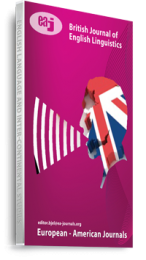Members of County Assembly of Bomet, Kenya, engage in debates over different motions proposed to aid in determining the best course of action regarding important matters affecting the County. However, the actions of the Members as they routinely discuss various motions on the floor of the County Assembly have received little scholarly attention. A knowledge of what participants do during the debating process and the pragmatic forces behind their utterances will provide insights into the nature of interaction at the County Assembly and at the same time show the state of affairs at the County. Therefore, this paper examines the pragmatic forces of speech acts used by Members of County Assembly of Bomet during debates at the County Assembly. The paper relied on Austin’s (1962) Speech Act Theory and the Five Categories of Speech Acts identified by Searle (2005), which include directives, expressives, commissives, declaratives, and assertives. The study also incorporated insights in the study of speech acts from Sotillo (2017). The paper purposefully sampled three motions from the Hansards recorded between the year 2013 and 2017. The data was downloaded from Bomet County Assembly’s website. Textual analysis was used to collect data. The data collected was analysed using descriptive statistics. The results showed that most pragmatic forces were manifested in assertives/representatives (for instance, informing, reporting, claiming, stating) accounting for 47.26%. This was followed by expressives (for example, thanking, apologizing, protesting, congratulating) at 23.63%, then directives (for example, requests, urge, ask, suggest, advise, direct) at 18.15%, declarations (declare, adjourn, christen, approve) at 7.19% and finally commissives (such as promise, vow, guarantee, refuse, assure) at 3.76%. This study contributes to existing knowledge on pragmatics and particularly the use of speech acts to explain the state of affairs in the society. The study therefore proposes that speech act analysis be adopted as an effective tool in the analysis of argumentative discourse.
Keywords: Debates, Hansards, Speech Acts., pragmatic forces, textual analysis

